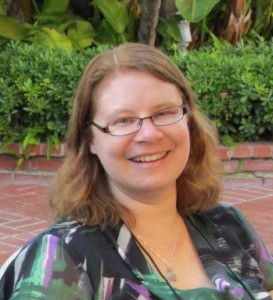
I love this time of year. For good or bad, 2013 is behind us and, although the holidays can be hectic and stressful, we all usually get at least a little down time. The beginning of a new year is a time of renewal, of focus, and energy. A time of self-reflection and setting goals.
For those who may not know how to set meaningful goals, I discussed the topic in great detail here.
The problem isn’t always the setting of goals though. We usually start the year well prepared with lists and plans ready to go. But sometimes we’re like the novice golfer who shows up to play with top-of-the line equipment but who hasn’t bothered to take a lesson. Limited by lack of knowledge or expertise, we may need to take a detour to educate or build those skills so we can reach the next level of craft (see posts from September of 2013 for more on that)
 Other times, we just find ourselves no longer inspired by those goals. It’s not that they weren’t laudable or appropriate. The energy just sort of deflates.
Other times, we just find ourselves no longer inspired by those goals. It’s not that they weren’t laudable or appropriate. The energy just sort of deflates.
It’s kind of like Wile E Coyote who, despite working on his goal tirelessly, never seems to find success.
In personal goals, we might have committed to trimming down until we fit into our middle-school clothing, or working out 9 days a week. But after a month or two, it becomes harder and harder to say no to the cookies or chocolate, or there are too many interruptions to the regular workout schedule so we just give up.
In writing, we may say, “I’m going to write every single day, no matter what.” But then the kids
get sick or we go on vacation, and the perfect record of 18 consecutive days is cracked, and then suddenly there’s no way to get it back and missing days becomes so much easier.
As I’ve considered this, and reviewed everything I did manage to accomplish in 2013, and what I’m determined to complete in 2014, I realized that the goals that work are the ones that inspire.
 These are goals that I term as having reached Critical Mass.
These are goals that I term as having reached Critical Mass.
Critical mass is the amount or level needed for a new action to occur.
In writing, projects that reach critical mass are the ones that take on a life of their own and begin pushing us forward until we can’t keep the genie in the bottle, no matter how much we want to get lazy or just give up.
So how do we find such a goal?
Each of us are motivated by different things, but there are some commonalities. And the great thing is that as we reach critical mass in a project and feel that rush of awesomeness typing those magic little words, “The End” it becomes easier to find the next project that has a chance to reach critical mass.
 Here are a few examples of my critical mass projects:
Here are a few examples of my critical mass projects:
– Completing that first novel. Although it took more than two years and the goal dragged through the middle and almost collapsed under its own weight, I persevered until the momentum began to roll. Once I knew the ending and could see myself getting there, churning out those last chapters proved easier and easier.
– Completing that first short story. A lot of people are smart enough to do this before the first novel, but not me. I set the goal of submitting a story to Writers of the Future (which I recommend everyone do). I’m not a short fiction writer, so this proved daunting, but I still pushed through, and again once I reached a certain point in the process, I couldn’t NOT finish.
– Attending that first con. As Sherry just mentioned in her recent post, a lot of us writers wait way too long to go to cons. It took me years to finally do it. I was too busy writing, but eventually realized the need. And my first World Fantasy Con is where I met the man who later became my agent.
– Completing that first full novel outline. I started as a pantser, but over time got tired of so much re-writing, so I’ve moved more toward outlining to help speed up the process. Of course, my first outline turned out to be completely wrong so I had to re-write that novel again anyway, but I still feel I got to the final draft faster.
Each of us have different things that motivate us, we’re on different steps in the path toward our ultimate goals of publishing or full-time writing. No matter where you stand, or what your specific goals are this year, focus your energies on the project that will reach critical mass.
Then it’s more a matter of keeping up than pushing on.


 My son used to try to bargain with me all the time, “I’ll do this chore. I promise. Just let me go have fun now and I’ll do it when I get back. Promise!” Ha. It would get put off and put off and further bargained until everyone involved had forgotten what he was supposed to do and he had done nothing but have fun. I’ll own the bad parenting involved when I fell for it time and time again.
My son used to try to bargain with me all the time, “I’ll do this chore. I promise. Just let me go have fun now and I’ll do it when I get back. Promise!” Ha. It would get put off and put off and further bargained until everyone involved had forgotten what he was supposed to do and he had done nothing but have fun. I’ll own the bad parenting involved when I fell for it time and time again.